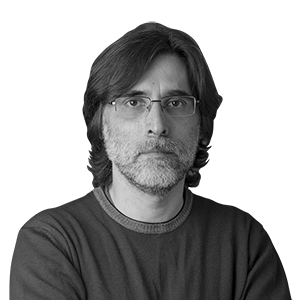At the most controversial Sónar there is also a desire to dance
Support for Palestine appears in some performances on the first day of the festival.


BarcelonaSpain and Palestine presented a resolution condemning the Israeli invasion of Gaza to the United Nations plenary session on Thursday. On the same day, the 32nd edition of the Sónar Festival opened at the Montjuïc Fair. It is an edition marked by the withdrawal of around thirty artists, dissatisfied with KKR, the pro-Israeli fund that in October 2024 became the main investor in Superstruct Entertainment, the company that bought Sónar in 2018. The festival subsequently added around twenty artists, bringing the lineup to 87%. Among the latest additions is a house legend of the magnitude of Todd Terry.
Music festivals tend to be bubbles, often removed from the sociopolitical context, but there are also those like Sónar, which have been more permeable to reality and where artists have always found a space to express themselves critically. This time, however, the reality in Gaza has had an effect that was unforeseeable before KKR's entry into Superstruct and, therefore, on Sónar and other festivals such as Viña Rock and Brunch Electronik.
One of the artists who most forcefully embraced the contradiction of condemning the violence of the State of Israel and performing at Sónar was Alizzz, who performed on the SonarPark stage this Thursday. Halfway through the concert (a very good one), before performing What's up kid?, recalled what he had explained on social media and added "Free Palestine" while waving a Palestinian flag in the audience. Behind him, the screen displayed the message "Freedom for Palestine. Erase KKR. The culture is ours." Alizzz shouted: "Sónar is ours too." Earlier, coinciding with the song Where are you?, had asked the audience to get more involved in the show. It wasn't necessary, because people were already responding by dancing and singing along to the songs... while some cell phones went off with the alarm: in Madrid, the president of the Spanish government, Pedro Sánchez apologized to the public for the Santos Cerdán case. and said he shouldn't have trusted the man who, until Thursday, had been his right-hand man in the PSOE. Reality entering the festival as a byproduct.
Other Sónar participants also showed their support for Palestine, such as researcher Margarita Mendes, who dedicated her lecture at SonarComplex on geopolitical ecology to Palestine and other peoples who are victims of colonialism, focusing on the Bialowieza Forest, one of the last virgin forests in Europe. And Portuguese Noia gave the session at SonarPark wearing a Palestinian T-shirt.
Beyond what each artist can express on stage, and beyond the Festival statement condemning "the genocide of the Palestinian people", life went on as usual at the Montjuïc fairgrounds: concerts, DJ sets, the tingling of Sónar+D, the Barcelona mugginess (especially annoying when there was no wind), promotional spaces for hotels (Melià), rolling paper (OCB), clothes (Lacoste) and cars (Nissan) and cars (Nissan) Estrella Damm beer for 6 euros, 50 cents more than last year (and one euro more than at Primavera Sound).
From Taüll to house
One of the new features this year is the installation Lux mundi, a project curated by Antònia Folguera (Sónar+D curator) that premiered last year in Taüll. It's an audiovisual reinterpretation of the frescoes of Sant Climent de Taüll created to commemorate the 900th anniversary of the church's consecration. Alba Corral, Masso, Desilence, Hammill Industries, and the live music of Tarta Relena pay homage to the Romanesque style with digital skill and sensitivity, with beautifully crafted abstract and light superimpositions over the recreation of the apse. The project doesn't achieve the intimacy and intensity experienced in the Boí Valley, because at Sónar, it takes place in a kind of roofless box and the sounds and noise are chosen from the other stages, but it preserves its transcendental emotion.
Right next door, in the SonarHall, Chano Domínguez and Bronquio have premiered Barcelona Street, a tribute to the street in Algeciras where Paco de Lucía lived. It's an initiative of the Taller de Músics in collaboration with Sónar, the SGAE (Spanish Association of Musicians), and the Paco de Lucía Foundation. The progressive flamenco jazz of the group led by the Cádiz-born pianist merges with the electronic contributions of Jerez-based producer Santiago Gonzalo, alias Bronquio, the interesting collaborator of the singer Rocío Márquez. Always with Paco de Lucía as an emotional reference, the proposal reflects the guitarist's musical heritage and combines different colors, among which the trumpeter Pol Garcia and the singer Irene Ribas. It would be nice if she had more live coverage. The pleasant darkness of SonarHall also welcomed Madrid-based Nina Emocional, hailed as one of the emerging talents to watch. Alone, with a staircase and a platform as stage elements, and dancers gradually appearing, she unfolds a remarkable, austere, and mysterious melodrama.
In broad daylight, under the immense SonarVillage awning, the first day of the festival demonstrated that even in the most controversial edition, there's still a desire to dance. A lot, in fact, as evidenced by American Todd Terry's set. A pioneer of New York house, sometimes serving as a service to great dance music divas like Jocelyn Brown and supplier of extraordinary remixes for Everything But the Girl, Björk, and Michael Jackson, he strung together familiar melodic hits in a rhythmically impeccable set, more summery than Latin nightclub-like. And he always delivered top-quality minnows, impassive behind his sunglasses, with the dignity displayed by those who know they're the masters of house music.
